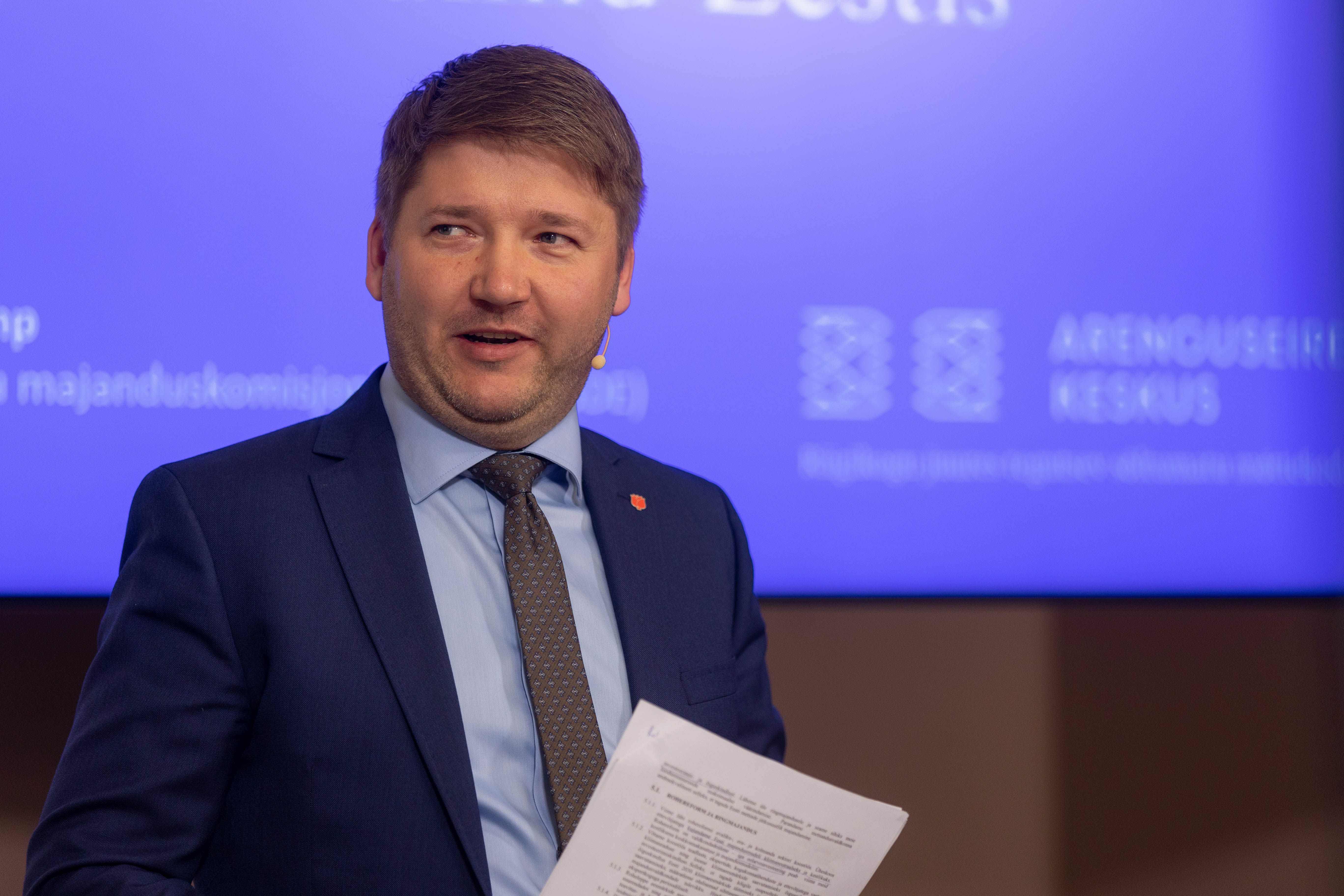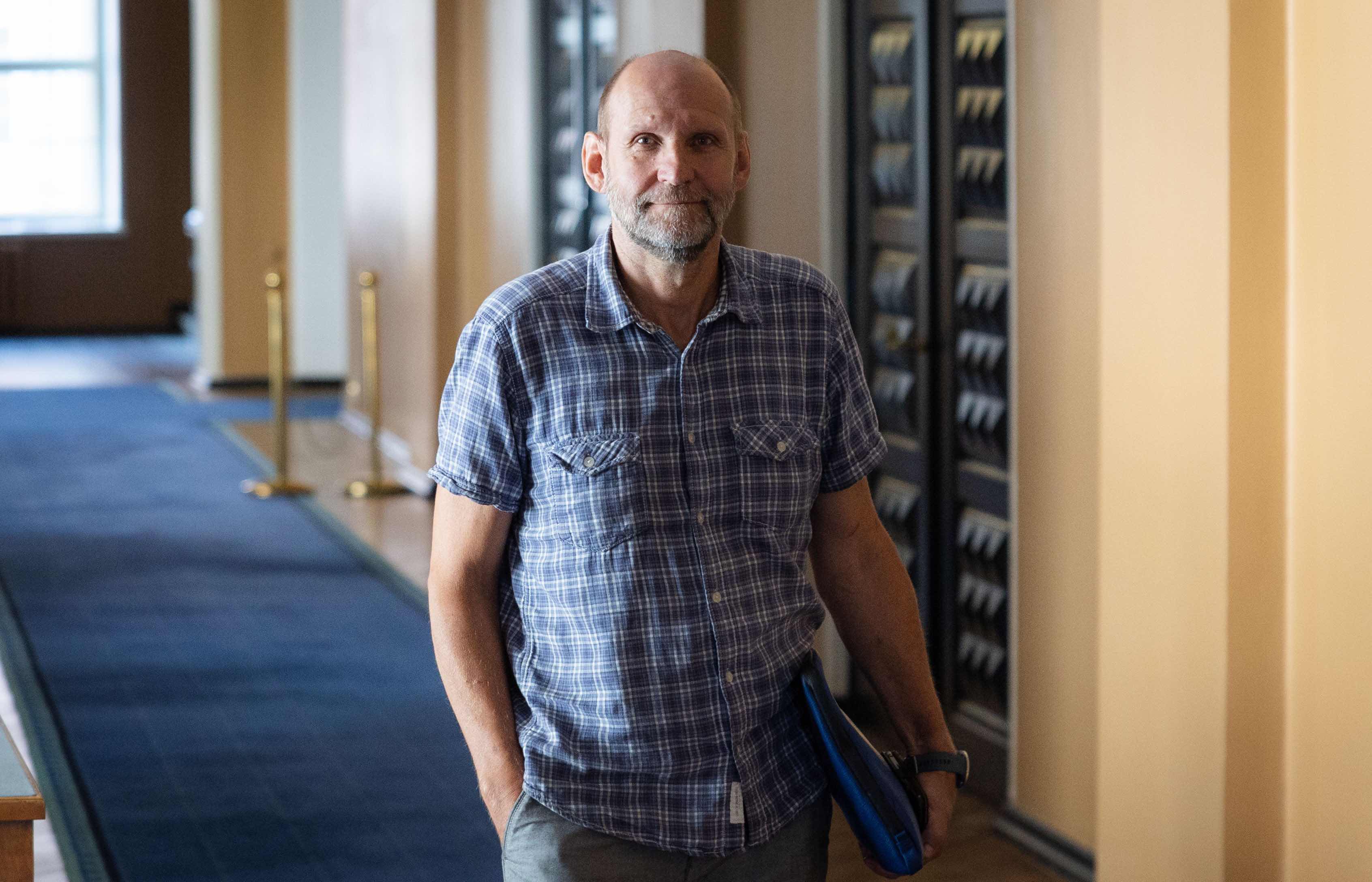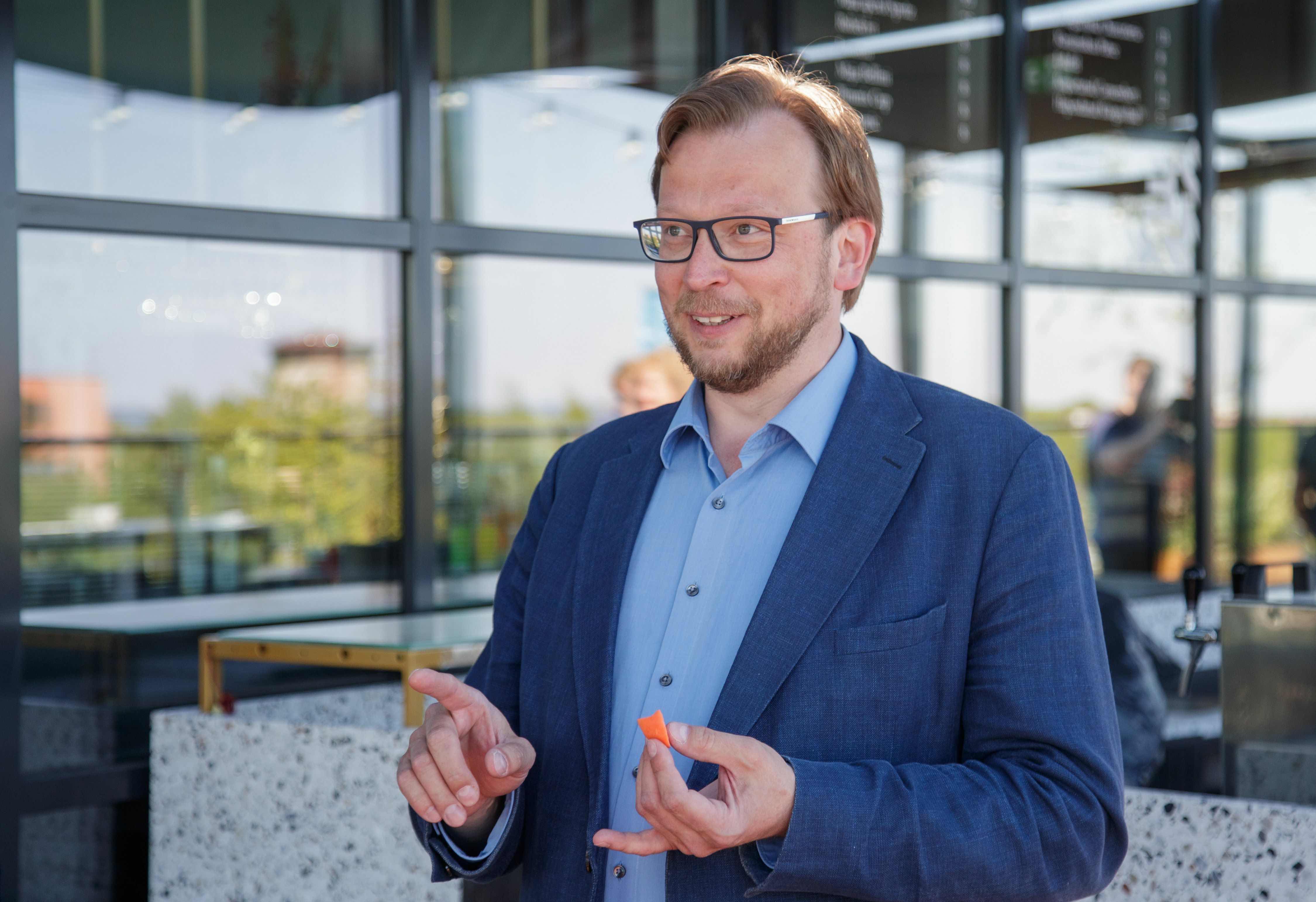Vox Populi

Kristo Enn Vaga
member of parliament (Reform Party)
The Reform Party and I personally are of the opinion that Belarusian and Russian citizens should not be making decisions in Estonia. On October 18, 2022, the parliament declared the Russian regime a terrorist entity with 88 votes in favor. We must understand that this terrorist regime is not only in the Kremlin but, unfortunately, also in the minds of many ordinary Russian citizens. Thousands of their soldiers are committing brutal war crimes in Ukraine, not just Vladimir Putin alone. Collective responsibility requires collective sanctions.
Understandably, many Estonians expect a solution to the voting rights issue, and citizens of a terrorist regime should be kept away from decision-making. Legal experts believe the most appropriate solution is to amend the constitution. However, constitutional amendments require thorough consideration. In my opinion, suspending the voting rights of citizens from an aggressor state during aggression is not only proportionate but also a necessary step to maintain legal peace and trust in both Estonia's electoral system and the elected bodies. We are working towards this in the parliament together with our coalition partners and members of the opposition.

Peeter Tali
chairman of the EU affairs committee of the Riigikogu and member of the national defense committee (Estonia 200)
This mechanism is called political will. Two of the six parliamentary parties clearly lack this will, and in fact, they oppose it. The Center Party and the Social Democratic Party fundamentally support voting rights for citizens of aggressor states, Russia and Belarus, in Estonia.
The Center Party has shrunk to a minor role in the current parliament. Meanwhile, the coalition partner Social Democratic Party are cannibalizing Center as much as they can by attempting to secure as many non-Estonian votes in local elections as possible, hoping this will boost their influence in future parliamentary elections.
I firmly believe that Tallinn's Lasnamäe district should not be a Russian city with different values and a separate information sphere. The appointment of Julianna Jurtšenko as the district elder of Lasnamäe, someone who has passionately opposed unified Estonian-language schooling, is grotesque, regardless of the political goals it may serve.
Our laws aim to ensure the continuity of the Estonian nation, language, and culture. When the world changes and the security situation worsens, laws need to be updated quickly—even the constitution, if necessary. If constitutional amendments are required, they can be done by a referendum.
I hope the parliament can reach an agreement and elect the next president, but the idea of aggressor-state citizens having any influence over the election of our supreme commander of national defense through the electoral college is troubling.
That is why I support the idea that, by default, only Estonian citizens and citizens of EU and NATO allied countries should have voting rights in local elections. I am not sure citizens of communist China should necessarily have the right to participate in Estonian elections, as their values and worldview are entirely different from ours, and they outnumber us greatly.

Priit Lomp
chairman of the SDE group of the Riigikogu
The example of the Narva Museum proves that, despite the wishes of local government council members to silence criticism of Vladimir Putin, the Estonian state will not allow this. The representatives of the City of Narva on the museum's supervisory board are Estonian citizens who will likely run in the next council elections. In recent elections, thousands of Estonian citizens under the influence of our neighboring country cast their votes in the Riigikogu and European Parliament elections for candidates in semi-open opposition to the Estonian state.
The Constitution of the Republic of Estonia grants voting rights in local elections to Russian and Belarusian citizens. This cannot be taken away by any lesser law, and a constitutional amendment would not be possible before next year's local elections. Any attempt to revoke these rights by other means would face legal challenges and might not be enforced. This approach, however, could bring previously non-voting Russian citizens to the polls, along with Estonian citizens of Russian descent who would be motivated by these attempts. The election results in East-Viru County and Lasnamäe may differ significantly from what proponents of this agenda expect.
Dealing with the voting rights issue daily, Isamaa is merely increasing the popularity of the Center Party and potentially leading Estonia back toward another government led by EKRE, Isamaa and the Center Party. Often, in politics, there is a different game of chess playing out behind the scenes, even when it is conducted under the blue-black-white flag.

Helir-Valdor Seeder
member of parliament (Isamaa)
Isamaa has proposed the removal of voting rights for Russian citizens through multiple compositions of the parliament. We believe this can be addressed by amending the Local Government Organization Act, though we are also prepared to amend the constitution. Ultimately, it is not the chosen path that matters, but that this issue is resolved decisively and conclusively.
The bill by Isamaa is currently being handled by the parliament, having passed its first reading in the spring session. We had hoped the coalition parties would support the bill to implement the will of the parliamentary majority and address a concern recognized by at least four groups. The president of the Riigikogu also emphasized this need in the opening speech of the fall session.
Unfortunately, Reform Party and Estonia 200 have not supported advancing the bill to a second reading in the constitutional committee or modifying its text to achieve broader consensus. They make grand statements on the voting rights issue, but their actions barely stir a fly.
Isamaa firmly believes that we must move forward with the issue of Russian citizens' voting rights, and the Riigikogu as a whole should have the opportunity to express its stance. As stated, we do not rule out any solution, including initiating constitutional amendments.

Indrek Luberg
member of the governing board of The Right
While the current government has managed to worsen the business environment and tax people into poverty, it has remained predictably ineffective on the issue of removing Russian citizens' voting rights. This goal was at least included in the coalition agreement under Kaja Kallas' government, but the initiative was shelved once Kristen Michal arrived.
As usual, the Reform Party-led government blames someone else for its poor decisions or inactions. This time, it is either Isamaa or the Social Democrats. Yes, the Social Democrats oppose stripping voting rights from citizens of aggressor states, but they are being kept in government by the Reform Party. They should have been dismissed long ago. The current Riigikogu would have enough support to strip voting rights from aggressor-state citizens, but the Reform Party merely pretends to be held hostage by the Social Democrats and avoids taking decisive action.
The voting rights of Russian citizens and stateless persons in Estonia are remnants of a transitional period, much like Russian-language education. Both should have been ended decades ago, but anti-state forces continue to exploit non-native voters. Previously, this was mainly the Center Party; now, the Social Democrats seek these votes, while others, like Koos, wait for an opportunity. Russia's attempts to interfere in other countries' politics through hostile propaganda, intentional division, and other information warfare tactics are a clear security threat to Estonia. Many Russian citizens and stateless persons in Estonia fall victim to this influence, knowingly or unknowingly supporting the interests of our hostile neighbor. The situation where Estonia's capital city is governed solely by non-native votes must never recur.
The decision on when and how to remove voting rights from Russian citizens and stateless persons in Estonian local elections lies with the parliament. This must be done as quickly as possible. The position of The Right is that constitutional amendments should be a last resort, and relevant institutions should be prepared to face any potential legal disputes.




